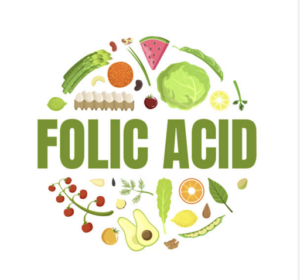From the moment you discover that you are expecting a child, your life as you know it changes. Your body morphs to make space for another, your priorities shift, and your eating habits also take a turn.
Nutrition during pregnancy is more than just eating for two; it’s about feeding your body and your baby with the right type of fuel. As Dr Kelvin Larwood (gynaecologist, Sunshine Coast) advises his patients, understanding the role of nutrition can significantly impact pregnancy and childbirth.
According to the Australian Dietary Guidelines, pregnant women need to consume a variety of nutritious food to meet their nutritional needs and support the development of their baby. But how does nutrition influence pregnancy and childbirth?
The food you consume has a direct effect on your baby’s growth. Certain nutrients play a vital role in your child’s development.

Take folate, for example, a nutrient integral to the healthy development of your baby’s neural tube. Given its significance, Australian health guidelines recommend women trying to conceive and those in the first trimester to take a daily folate supplement.
Weight management during pregnancy is another area where nutrition plays a critical role. Gaining too much or too little weight can increase the risk of complications like gestational diabetes, pre-eclampsia, or even preterm birth.
The Australian Institute of Health and Welfare reveals that about half of the pregnant women in Australia gain more weight than recommended. A balanced diet rich in nutrients can help manage weight gain during pregnancy.
Besides this, appropriate nutrition can help prevent or manage complications that may arise during pregnancy. Gestational diabetes, which affects around 15% of Australian women during their pregnancy, can be effectively managed, and in some cases, even prevented with a well-balanced, low-GI diet.
Moreover, childbirth is a physically demanding process that requires energy and stamina. Your nutritional choices can prepare your body for this process. For instance, including protein-rich foods in your diet can help strengthen your muscles, thereby preparing your body for childbirth.
Even after childbirth, nutrition continues to play a crucial role in your life. It aids in quicker recovery post childbirth and ensures you have enough nutrient supply if you choose to breastfeed your child.
As a gynaecologist on the Sunshine Coast, Dr Kelvin Larwood understands the pivotal role nutrition plays in this life-changing period. He advises his patients about the importance of good nutrition for a healthy pregnancy, smooth childbirth, and a swift recovery.
Nutrition has always been a cornerstone of overall health, but when you’re expecting, the importance of proper nutrition rises to a whole new level. The food you consume directly influences not just your health but also the health and development of your baby.
The initial few weeks of pregnancy are critical for your baby’s development as this is when all the major organs and body systems begin to form. Folate, also known as folic acid, is an essential nutrient during this phase.
Folate helps prevent birth defects in the baby’s brain and spine, known as neural tube defects. The Australian health guidelines recommend a daily intake of 400 micrograms of folic acid a month before and three months following conception.
Calcium and Vitamin D are also critical during pregnancy. Calcium helps your baby develop strong bones and teeth, and vitamin D helps the body absorb calcium. According to the National Health and Medical Research Council, pregnant women over 18 years need 1,000 milligrams of calcium per day, and the recommended dietary intake of vitamin D is 5 micrograms per day.
Moreover, iron is crucial for making haemoglobin, the protein in red blood cells that carries oxygen to other cells. During pregnancy, your iron needs to double. The lack of iron can lead to iron deficiency anaemia, a condition that, if left untreated, can lead to premature birth and low birth weight. The Australian Dietary Guidelines recommend 27 milligrams of iron per day for pregnant women.
An often overlooked aspect of nutrition during pregnancy is hydration. Fluid intake is essential to support the increase in blood volume during pregnancy and to keep the body hydrated. While the adequate intake of water for pregnant women is set at 2.3 litres by the Australian health guidelines, this may vary depending on individual needs.

Additionally, nutrition has a significant role in managing gestational weight gain. According to the Australian Institute of Health and Welfare, about 50% of pregnant women in Australia gain more weight than recommended. A healthy, balanced diet can help manage weight gain and prevent complications such as gestational diabetes, pre-eclampsia, and even preterm birth.
Furthermore, it’s also essential to understand that not all fats are harmful. Omega-3 fatty acids, found in foods like fish, chia seeds, and walnuts, are beneficial during pregnancy as they aid in the development of your baby’s brain and eyes.

Eating a healthy, varied diet in pregnancy will help you get most of the vitamins and minerals you need, but some women may need to take a supplement depending on their dietary intake and lifestyle factors. Dr Kelvin Larwood is well-equipped to provide individualised advice based on personal needs and conditions.
Post-childbirth, your body needs time to recover and regain its strength. Good nutrition can aid in quicker recovery, ensure ample milk production if you choose to breastfeed, and can also help manage postpartum depression, a condition that affects up to 1 in 7 women in Australia.
Dr Kelvin Larwood advises that every woman’s pregnancy journey is unique, and therefore their nutritional needs might vary too. Regular consultations with a trusted healthcare professional can help manage your dietary needs more effectively.
Navigating through pregnancy is an exciting yet challenging time. By understanding the influence of nutrition on pregnancy and childbirth, you can ensure a healthier journey into motherhood for you and your baby.
Always remember, while information available online can be helpful, it’s always advisable to consult with healthcare professionals like Dr Kelvin Larwood for personalised advice on your nutritional needs during pregnancy. After all, nothing is more important than the health of you and your baby.
Remember, good nutrition is the bedrock of a healthy pregnancy journey. Ensuring a balanced, nutrient-rich diet will not only keep you in good health but will also ensure a strong foundation for your baby’s growth and development.
So, embrace these months of transformation with the right nutrition and expert guidance from professionals like Dr Kelvin Larwood.

